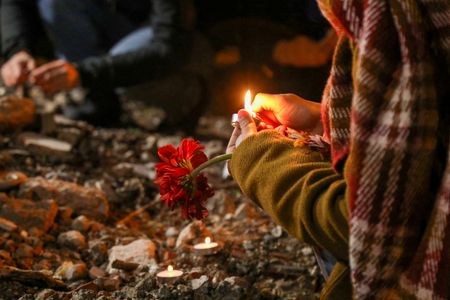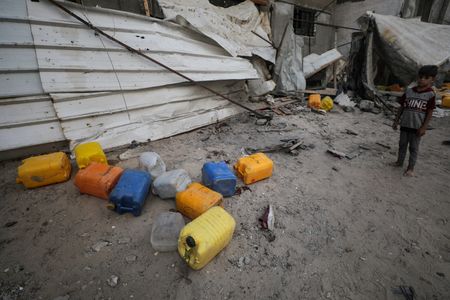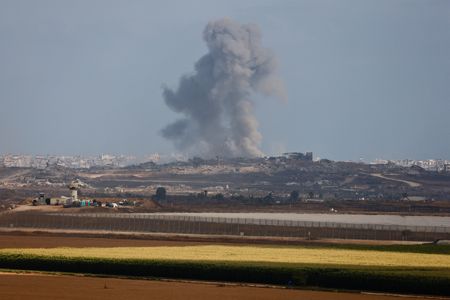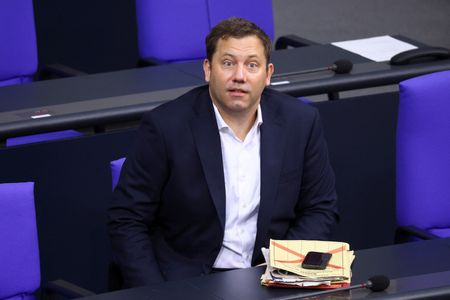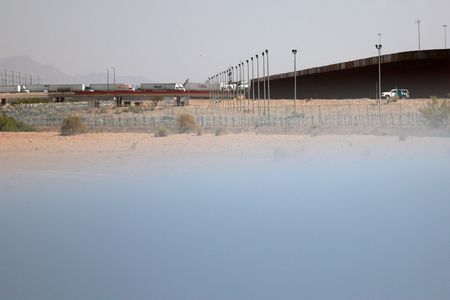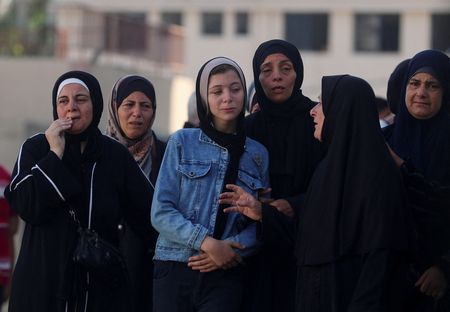By Ece Toksabay
ANKARA (Reuters) -Two years after the deadliest and most destructive earthquake in modern Turkish history, hundreds of thousands of people remain displaced, with many still living in temporary housing, as rebuilding efforts lag behind initial targets.
Residents of Antakya, the city hardest hit, gathered at 4:17 a.m. (0117 GMT) on Thursday with laurel branches and torches to mark when the 7.8-magnitude tremor struck on Feb. 6, 2023.
“No forgetting, no forgiving, no reconciliation,” they chanted.
The quake and its aftershocks rattled 11 Turkish provinces in the southeast and parts of northern Syria, killing more than 55,000 people and injuring more than 107,000.
It reduced entire towns to rubble, including homes, hospitals, and historical landmarks especially in Hatay province, where Antakya is located.
In Antakya – known in ancient times as Antioch – empty streets, shuttered businesses, and demolition work still define the city, which was once a bustling mixture of cultures and religions, and a draw for tourism.
“Our wounds are still fresh, still bleeding. We promise to keep this grief alive in our hearts,” resident and activist Ozgur Tiras told the crowd on Thursday. “We promise you, ancient Antakya, we will rebuild this city with our own hands.”
The government pledged to build 650,000 homes, nearly half within the first year after the quake.
President Tayyip Erdogan said on Monday that around 201,000 homes had so far been delivered. On Thursday, he said 453,000 units would be completed by the end of this year, adding that measures had been taken to rebuild shattered infrastructure.
“We have shown the (presence of the) state with construction and reparation efforts that went on day and night for two years,” he said at a commemoration event, dismissing criticism of his government’s efforts.
Environment and Urbanisation Minister Murat Kurum said $75 billion had been spent on rebuilding across the quake region.
The critical reconstruction phases are done, he said, adding that housing and business projects were progressing rapidly.
‘FAR TOO SLOW’
Many residents, however, remain in makeshift conditions, while others have left their home provinces entirely, disrupting communities and livelihoods.
The International Federation of Red Cross and Red Crescent Societies (IFRC) said the pace of reconstruction was “far too slow” for such a disaster.
Ozgur Ozel, leader of Turkey’s main opposition Republican People’s Party (CHP), said only 30% of promised reconstruction had been completed.
“Only three out of 10 who believed in Erdogan now have homes, while the other seven are still in containers or seeking refuge in the homes of relatives,” Ozel said on Tuesday.
“How can they look into the eyes of those they forced to live in containers for two years and say, ‘We have kept all our promises, thank God’?”
The Hatay Earthquake Victims’ Association said in a report more than 400,000 people remain in container-home cities, facing poor sanitation, inadequate healthcare, and an uncertain future.
It also raised concerns about asbestos exposure from unregulated demolitions and land seizures under emergency decrees.
(Reporting by Ece Toksabay; Additional reporting by Tuvan Gumrukcu; Editing by Jonathan Spicer and Gareth Jones)

